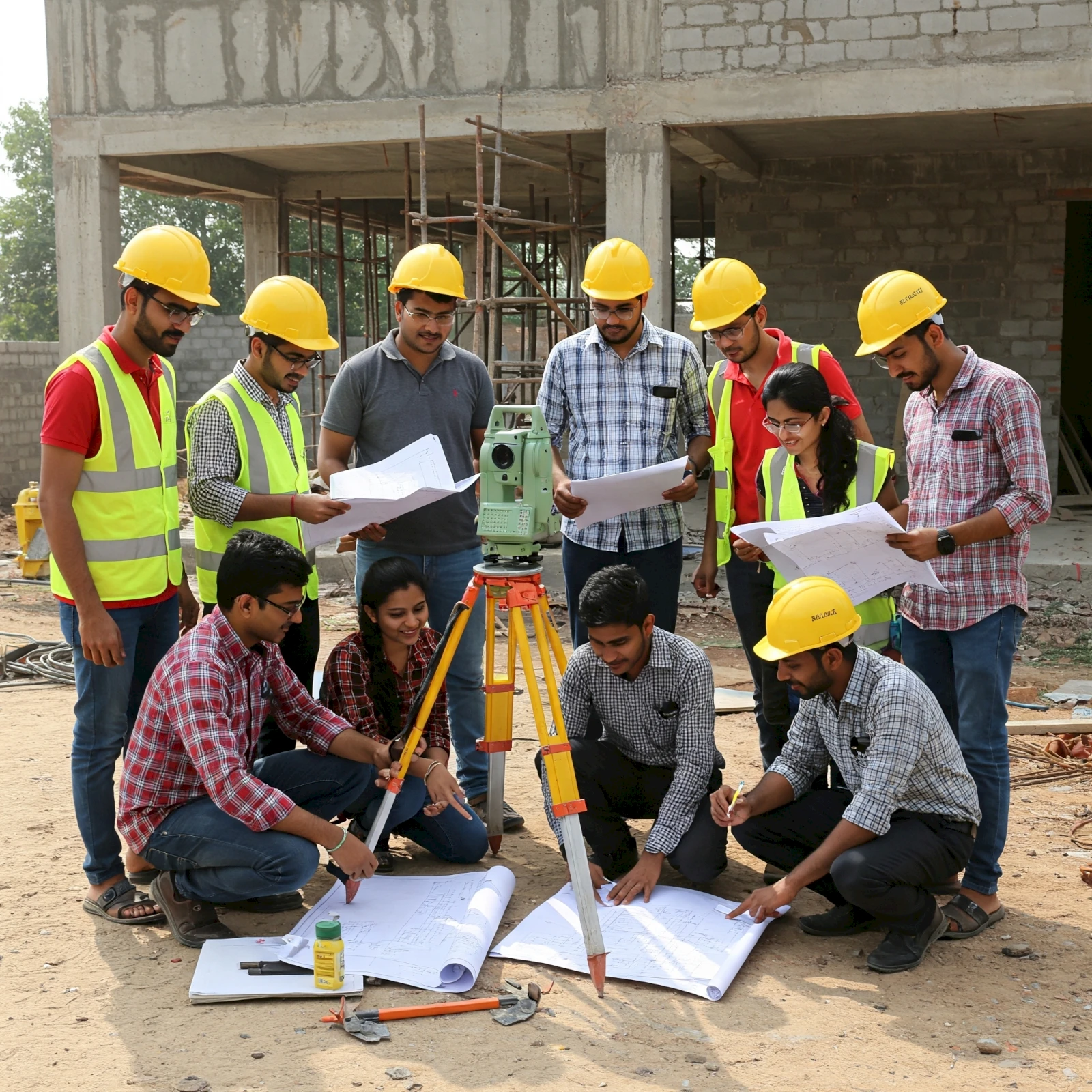B.Tech. Civil Engineering - Shape the Future of Infrastructure

Blog / January 13, 2024
B Tech Civil Engineeringcareer options after B Tech Civil EngineeringIn an era marked by rapid urbanization and growing environmental challenges, the field of civil engineering is going through metamorphic alterations to fulfill the demands of the 21st century. Engineers are cradling advanced technologies and sustainable practices to design and construct infrastructure that is not only resilient but also environmentally friendly.
One significant trend in the field of civil engineering is an amalgamation of smart technologies that enhance the effectiveness of infrastructure frameworks. The utilization of data analysis, sensors, and Internet of Things (IoT) tools enables engineers to monitor the condition of bridges, roads, and buildings in real-time.
This proactive approach allows early detection of potential issues, facilitating timely maintenance and preventing catastrophic failures. Wait, do you want to be part of the team constructing dream infrastructures? Pursue a B.Tech. in Civil Engineering.
What does the future hold?
The demand for Civil Engineering is anticipated to increase by 5 percent between 2022 and 2032, surpassing the average growth rate for all occupations. On an annual basis, an estimated 21,200 job vacancies for civil engineers are predicted over the course of the decade. This rise in demand is largely attributed to the necessity of filling positions vacated by individuals transitioning to other professions or leaving the workforce, which includes retirements.

Career Options After B.Tech. Civil Engineering
A Bachelor in Civil Engineering opens a vast and vivid range of career options for aspiring minds. Here are some promising career paths individuals with a B.Tech in CE can explore:
1. Structural Engineer:
Design and analyze structures, for example, buildings, bridges, and tunnels, to make sure they meet safety and durability standards.
2. Construction Project Manager:
Oversee and handle construction projects, coordinating ample activities, budgets, and timelines to ensure fruitful project completion.
3. Transportation Engineer:
Emphasis on the design as well as transportation system’s development, which incorporates roads, highways, airports, and railways.
4. Geotechnical Engineer:
Specialize in studying soil and rock mechanics to assess their effect on construction projects, especially in foundation design.
5. Water Resources Engineer:
Work on projects related to water supply, flood control, and water treatment, addressing and tackling issues like water scarcity and pollution.
6. Environmental Engineer:
Address environmental challenges by showing up with solutions for waste management, pollution control, and sustainable development.
7. Urban Planning and Development:
Contribute to the planning and development of urban regions, emphasizing infrastructure, zoning, and sustainable urban development.
8. Quantity Surveyor:
Estimate and handle construction costs to ensure projects don’t surpass the allocated budget by keeping materials, labor, and other expenses in check.
9. Research and Development:
Engage in research to innovate and improve construction materials, techniques, and technologies.
10. Consulting Engineer:
Work for consulting firms, giving expert advice on engineering projects, usually involving diverse clients and challenges.
As the field of Civil Engineering is constantly evolving, professionals with a B.Tech. in Civil Engineering have the opportunity to make a significant impact across
numerous industries contribute to the development and sustainability of our built environment.
Remember, apart from stepping into the corporate world, you can also consider pursuing higher studies, including an M.Tech. in Civil Engineering, Ph.D. in Civil Engineering, etc.
Craft Your Legacy in Steel & Concrete with a B.Tech. Civil Engineering @ Shiv Nadar University (Institution of Eminence)
Shiv Nadar University, established in 2011, is a research-driven multidisciplinary private university located in Greater Noida, India. Prominent for its dedication to academic excellence and innovation, the university offers a vast range of undergraduate and postgraduate programs. Among its flagship offerings is the Bachelor of Technology (B.Tech.) course in Civil Engineering.
The B.Tech. in Civil Engineering course at the School of Engineering is curated to provide students with an all-inclusive comprehension of the field, mixing theoretical knowledge with practical applications. The curriculum focuses on core concepts, for example- structural engineering, transportation engineering, geotechnical engineering, and water resources. Students benefit from contemporary and well-equipped laboratories, cutting-edge research opportunities, and a faculty comprising experienced professionals and scholars.
The course also promotes a comprehensive development approach, integrating critical thinking, problem-solving skills, and a strong ethical foundation. Beyond academics, students engage in hands-on projects, internships, and industry collaborations to gain real-world experience.
Graduates of the Civil Engineering course at Shiv Nadar University are well-equipped to meet and tackle the challenges of the evolving engineering landscape, making effective contributions to infrastructure development and sustainable practices.
Construct Your Dreams with a B.Tech. in degree Civil Engineering
Civil engineering is the bedrock of modern infrastructure, encompassing design, construction, and maintenance. This field addresses society's evolving requirements, focusing on innovation, sustainability, and resilience. A degree in Civil Engineering opens doors to dynamic career opportunities, driving progress and shaping our world. Join Shiv Nadar University to shape your career in civil engineering.